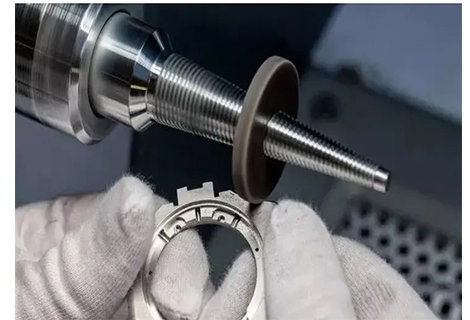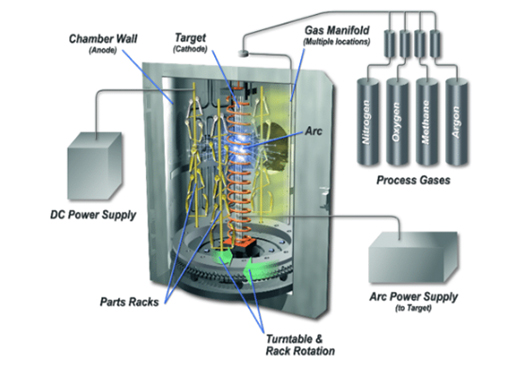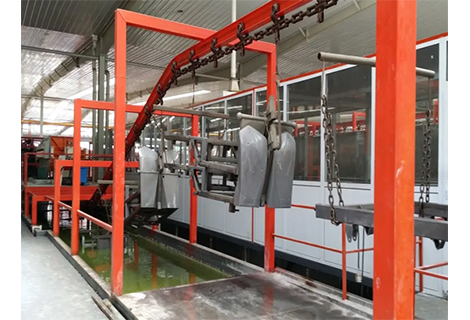Aluminum CNC machine is one of the most common types of metal CNC machines. Aluminum boasts a plethora of applications, particularly within the manufacturing industry. Its characteristics, such as machinability, high strength, workability, and lightweight nature, render it indispensable. It's no surprise that aluminum consistently ranks among the most commonly utilized materials for machining. This article provides a comprehensive guide to aluminum machining.
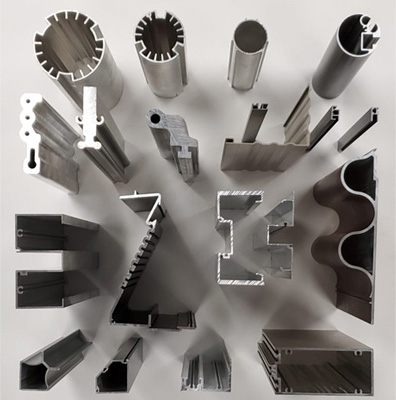
In its pure form, aluminum boasts malleability, corrosion resistance, non-magnetic properties, and excellent heat and electricity conductivity. However, its strength alone is often insufficient for many industrial applications. To enhance its strength, molten aluminum is alloyed with elements such as copper, lithium, magnesium, manganese, silicon, and zinc. These alloys not only strengthen aluminum but also enhance its innate properties. During this process, employing the best CNC machines for metal ensures efficient and precise machining of these aluminum alloy components. The most prevalent aluminum alloys used in CNC machining can be categorized into three groups:
1. Cast aluminum alloys
These alloys are shaped while molten, typically through casting into molds and subsequent cooling. Cast aluminum alloys are valued for their affordability, versatility, lightweight nature, durability, and ability to perform under high temperatures. In various industries, including automotive, cast alloys find application in engine components, housings, steering mechanisms, and structural elements. They are also used in cookware, machinery parts, and tools. Cast alloys offer cost advantages due to their low melting point and mold adaptability. However, they generally exhibit lower tensile strengths compared to wrought alloys, are less machinable, and result in higher tool wear.
2. Aluminum Lithium (Al-Li) alloys
Al-Li alloys leverage lithium's low density, resulting in significantly lighter alloys compared to pure aluminum or other materials. These alloys are predominantly used in aerospace applications, such as wing structures, fuselages, and fan blades. They also find use in high-performance vehicles and space exploration. Despite their weight advantages, Al-Li alloys present challenges in machinability and fracture toughness. Additionally, their production in relatively small volumes contributes to higher costs.
3. Wrought aluminum alloys
These alloys undergo shaping while solid, typically through processes like rolling, forging, stamping, or extrusion. Wrought alloys are favored in CNC machining for their superior mechanical properties and structural integrity compared to cast alloys. Wrought alloys are easier to machine, yield better surface finishes, and impose less wear on cutting tools. They find extensive use across industries for various applications requiring precision machining and structural strength.
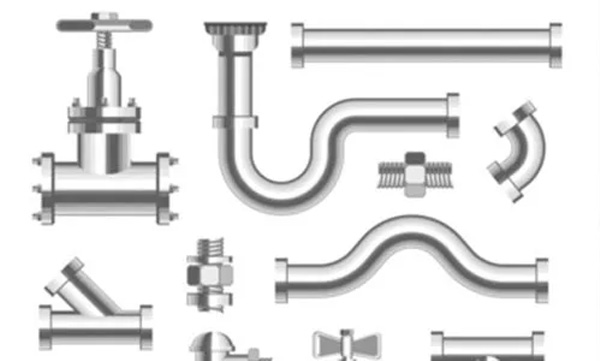
CNC milling machines stand out as the most prevalent and adaptable method for CNC machining aluminum components. These machines employ rotating cutting tools to precisely and efficiently remove material from a stationary block. Originally conventional milling machines, the advent of computer numerical control (CNC) systems in the 1960s led to their transformation into "machining centers," equipped with features like automatic tool changers and tool carousels. Available in configurations ranging from 2 to 12 axes, though 3 to 5-axis setups are most common.
CNC metal lathes, also known as CNC metal turning centers, securely clamp and rotate a workpiece while a toolhead applies a cutting tool or drill. Renowned for their precision in material removal, these machines find applications across diverse industries. Typical lathe operations encompass drilling, shaping, slot-making, tapping, threading, and tapering. CNC metal lathes are swiftly replacing manual production models due to their simplicity in setup, operation, repeatability, and accuracy.
CNC plasma cutters utilize high-temperature compressed air to generate a "plasma arc" capable of melting metal up to six inches thick. The sheet material is secured flat against a cutting table, with the torch head's path controlled by a computer. The molten metal is blown away by compressed air, enabling efficient cutting. These cutters are prized for their speed, precision, ease of use, and affordability, finding utility across multiple industries.
CNC laser machines either melt, burn, or vaporize material to achieve cutting. Like plasma cutters, the sheet material is positioned flat against a cutting table, with a high-power laser beam's path controlled by a computer. CNC metal laser cutters consume less energy compared to plasma cutters and offer superior precision, especially with thin materials. However, only the most powerful and costly laser cutters can handle thick or dense materials.
CNC water cutters rely on extremely high-pressure jets of water, often mixed with an abrasive substance, to cut through materials. This method does not induce heat, preserving the material's integrity, and allowing for precise cutting without warping or structural changes. Additionally, it minimizes waste and enables tighter nesting of cut shapes on a sheet.
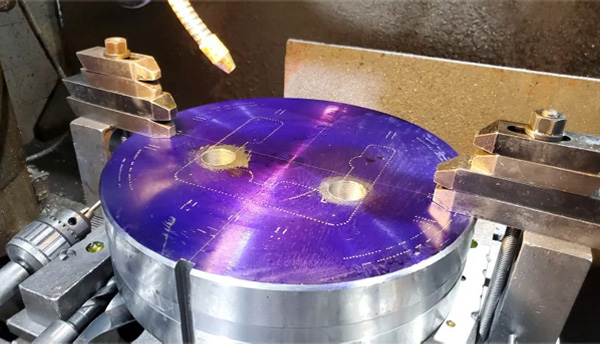
Aluminum CNC machining finds extensive applications across various industries, facilitating the manufacture of precision machined parts. Some sectors that heavily rely on aluminum CNC machining include:
Aerospace Industry: Precision machined parts play a critical role in the aerospace industry where even the slightest error can result in significant financial losses. Aluminum CNC machining is instrumental in producing various aerospace components, including airfoils, landing gear parts, plane fittings, bushings, and electrical connectors.
Electrical Industry: The trend towards smaller, more powerful, and lightweight consumer electronics necessitates tight tolerances in component manufacturing. CNC aluminum machining caters to the demands of the electronics industry, producing parts such as semiconductors, printed circuit boards, hardware components, metal slats, and heat sinks.
Medical Industry: Precision machining is paramount in the medical sector, where component failure can have life-threatening consequences. Aluminum machining meets and surpasses the stringent requirements of the medical industry, producing various critical parts, including medical instruments, surgical implants, MRI machines, research equipment, and orthotic devices.
Automotive Industry: Aluminum's ability to withstand weight makes it indispensable in the automotive sector, particularly for manufacturing wheel components. Additionally, aluminum aids in emission reduction, contributing to energy savings in automotive applications.
The inherent advantages of utilizing aluminum in the machining process apply universally across all its alloys, rendering them well-suited for CNC milling and various manufacturing procedures. These benefits encompass:
Machinability: Aluminum's ease of machining is a primary reason why engineers opt for it in CNC machining. Its softness and propensity to chip enable swift and effortless cutting by metal CNC machine tools. This characteristic proves highly advantageous for machinists and clients seeking aluminum parts and metal CNC projects. The simplicity of shaping intricate components expedites the manufacturing process, resulting in cost-effectiveness. Furthermore, CNC metal milling machines excel in achieving tight tolerances, ensuring accuracy and repeatability.
Corrosion Resistance: While different aluminum grades exhibit varying degrees of corrosion resistance, those commonly used in metal CNC machines parts demonstrate exceptional resilience against atmospheric and marine corrosion. For instance, aluminum 6061 is renowned for its corrosion resistance. Moreover, the anodization potential of these alloys enhances their corrosion resistance. Applying aluminum anodizing as a surface finish further fortifies their ability to withstand corrosion.
Strength-To-Weight Ratio: Aluminum's mechanical properties make it a preferred choice for mechanical applications. Despite its lightweight nature, aluminum boasts remarkable strength. The amalgamation of these characteristics defines its impressive strength-to-weight ratio, rendering it ideal for automotive and aerospace components.
Electrical Conductivity: The conductivity of aluminum renders CNC machined aluminum parts invaluable in fabricating electrical and electronic components. Aluminum materials typically exhibit superior conductivity compared to stainless steel, boasting approximately 37.7 million Siemens per meter of conductivity at room temperature.
Recyclability: Another significant advantage of aluminum is its high recyclability. CNC machining, being a subtractive process, generates considerable waste in the form of chips. Aluminum’s recyclability not only mitigates material wastage but also facilitates potential cost recovery for stakeholders.
In a word, aluminum CNC machining stands as a widely adopted manufacturing process. The versatility, machinability, and unique properties of aluminum, combined with advanced CNC machining technologies, make it an indispensable material in various industries. From aerospace and automotive to electronics and medical sectors, aluminum CNC machining continues to drive innovation and meet the demands of modern manufacturing.
Richconn sets a high standard in the industry for aluminum CNC machining services. It takes pride in its outstanding Aluminum CNC Machining services. It excels in precision engineering, quick turnaround times, cost-effective solutions, and a wide range of customization options. The state-of-the-art equipment and skilled technicians ensure micron-level precision and fast project delivery without compromising on quality.
 Shenzhen International Industrial Automation and Robot Exhibition 2023August 14, 2023The SIA 2023 Shenzhen International Industrial Automation and Robot Exhibition will be grandly held at the Shenzhen Convention and Exhibition Center from December 1-3, 2023. The exhibition covers indu...view
Shenzhen International Industrial Automation and Robot Exhibition 2023August 14, 2023The SIA 2023 Shenzhen International Industrial Automation and Robot Exhibition will be grandly held at the Shenzhen Convention and Exhibition Center from December 1-3, 2023. The exhibition covers indu...view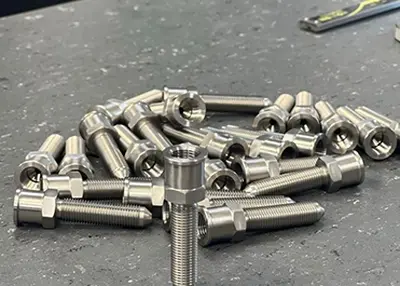 Types And Characteristics Of FastenersOctober 24, 2023Screws the most common fasteners used to create removable threaded connections in household appliances, industrial equipment, transportation, building structures and other machines and mechanisms. Consider the varieties of bolts, the materials of construction, and the characteristics of their manufacture.view
Types And Characteristics Of FastenersOctober 24, 2023Screws the most common fasteners used to create removable threaded connections in household appliances, industrial equipment, transportation, building structures and other machines and mechanisms. Consider the varieties of bolts, the materials of construction, and the characteristics of their manufacture.view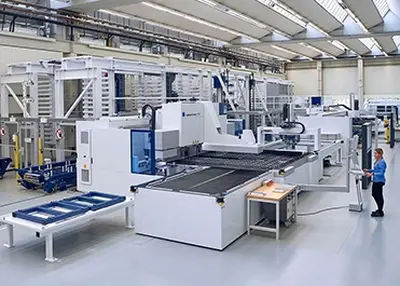 How to Find the Right Manufacturing PartnerOctober 13, 2023It’s worth taking the time to find a supplier that’s a perfect fit for the buyer’s company. Think of it as a partnership in which both parties are committed and invested. In the digital age, it is increasingly advisable to also consider additional total cost of ownership (TCO) savings.view
How to Find the Right Manufacturing PartnerOctober 13, 2023It’s worth taking the time to find a supplier that’s a perfect fit for the buyer’s company. Think of it as a partnership in which both parties are committed and invested. In the digital age, it is increasingly advisable to also consider additional total cost of ownership (TCO) savings.view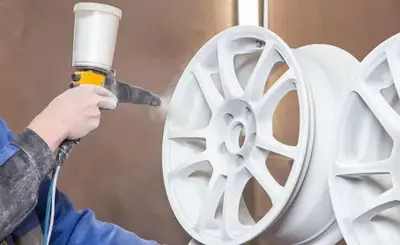 Spray painting, powder spraying, electrophoresis: three common surface treatment methodsMarch 6, 2024Spray painting is a common way of surface treatment, its principle is to use air pressure to spray paint from the nozzle, forming tiny droplets, that and evenly attached to the surface of the painted object.view
Spray painting, powder spraying, electrophoresis: three common surface treatment methodsMarch 6, 2024Spray painting is a common way of surface treatment, its principle is to use air pressure to spray paint from the nozzle, forming tiny droplets, that and evenly attached to the surface of the painted object.view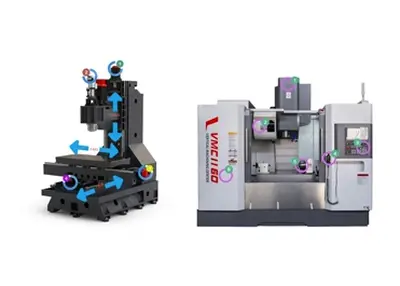 3-Axis Vs 4-Axis Vs 5-Axis CNCJuly 21, 20233-axis machiningThree axis CNC machining is the most basic, commonly used in the machinery manufacturing industry is one of the most important processing methods. Common understanding is: accurate lin...view
3-Axis Vs 4-Axis Vs 5-Axis CNCJuly 21, 20233-axis machiningThree axis CNC machining is the most basic, commonly used in the machinery manufacturing industry is one of the most important processing methods. Common understanding is: accurate lin...view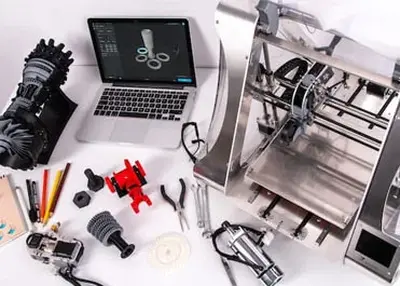 How Much Do 3D Prints Cost: An In-Depth Guide to ExpensesAugust 15, 20233D printing has revolutionized manufacturing and design, allowing individuals and businesses to create intricate and customized objects with unprecedented ease. However, one common question that arise...view
How Much Do 3D Prints Cost: An In-Depth Guide to ExpensesAugust 15, 20233D printing has revolutionized manufacturing and design, allowing individuals and businesses to create intricate and customized objects with unprecedented ease. However, one common question that arise...view
 EN
EN
 ru
ru 

